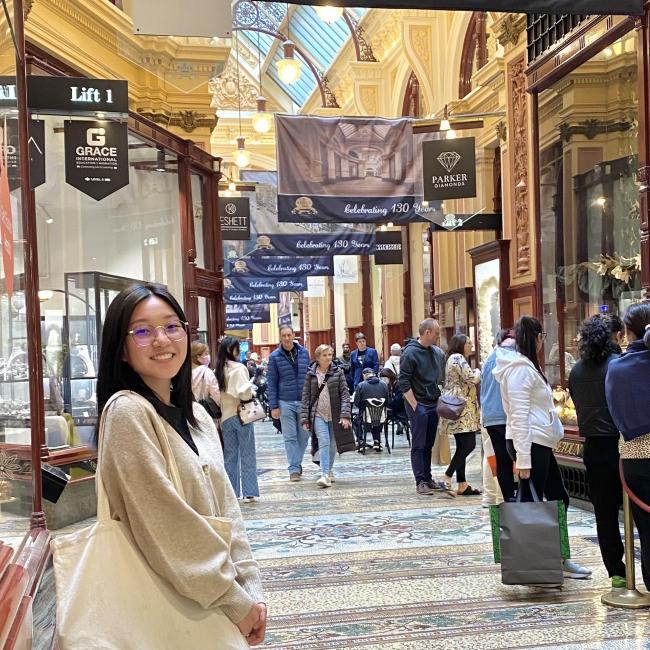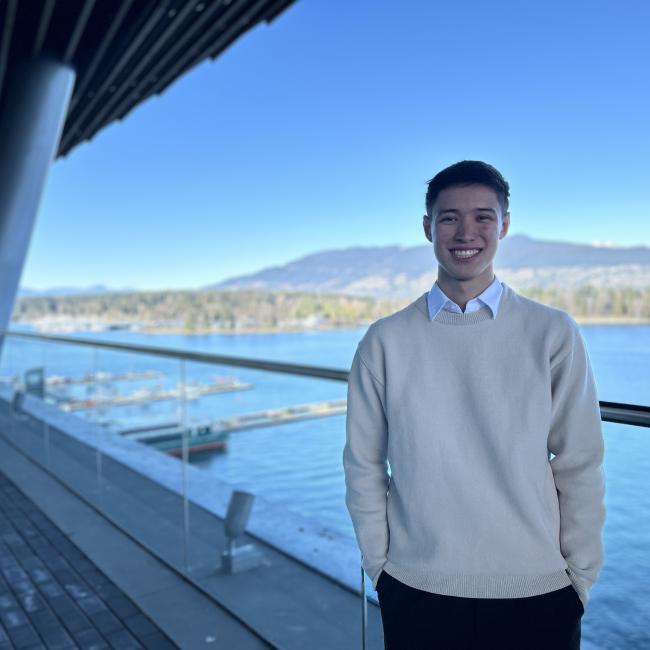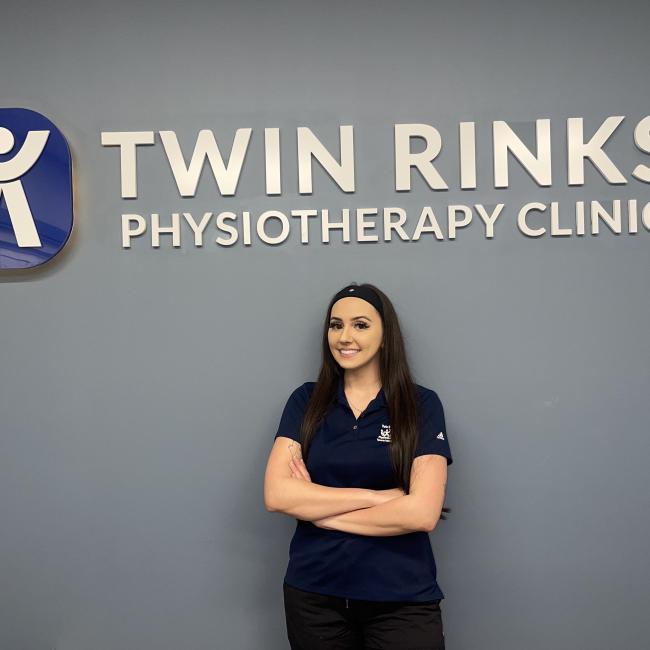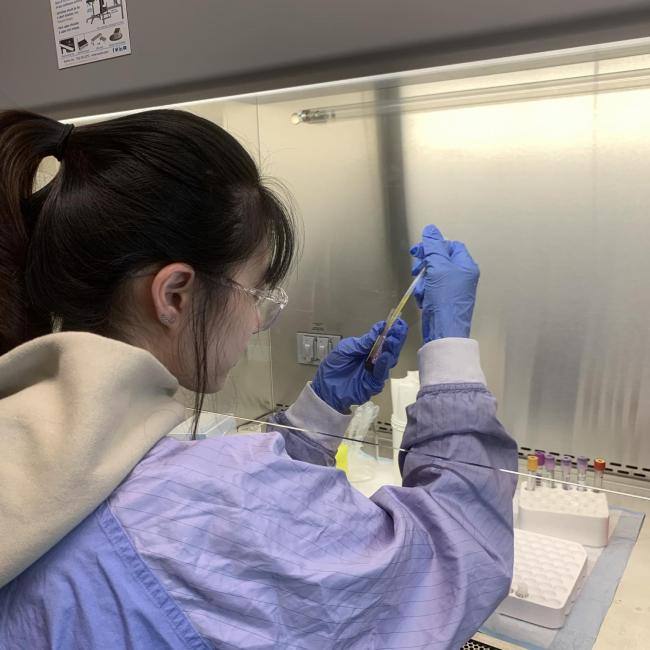Nicole is currently employed as the Resource Development Coordinator and as a Child Support Worker for the Marguerite Dixon Transition Society. Her duties as the Resource Development Coordinator include writing speeches, giving presentations for the United Way speaker's bureau, writing grant proposals, managing their donor database and assisting with fundraisers. Her English degree is vital when she writes copy and assists with the creation of newsletters and promotional material. "As a Child support worker, I act as an advocate for children who have witnessed or experienced abuse,? she says. "I liaise with other agencies on their behalf, meet with them weekly to talk and engage them in productive play and support them as necessary."
In 2008 Nicole graduated from SFU with a Bachelor of Arts, double major in English and History with a Co-operative Education Designation. The skills she developed while at SFU are essential to her position as Resource Development Coordinator. Nicole attributes many of her skills to classes at SFU, including "anything and everything that taught me how to write in a clear and concise manner, with care and attention to spelling, grammar, and sentence structure?And while they may seem like just a stressful addition to your classes, presentations help to prepare students for public speaking in the work place. Nicole says, "The frequent academic requirement of giving class presentations helped me prepare for giving United Way presentations in front of audiences of 20-150 people."
"My first Co-op experience with a publishing company gave me the skills necessary to create and maintain a database, manage mass mailings, and operate the graphic design programs necessary to create promotional documents. "Co-op can also help students realize what fields they don抰 want to work in. Nicole's first eight month placement with the publishing company helped her realize that a career in the publishing industry was probably not for her. Regarding the experience she says, "In spite of the negative aspects of the placement, I came away with an understanding of Adobe Design programs, database and mailing list management, and a firm knowledge that I did NOT want to work in publishing."
During her next placement, Nicole discovered a position that suited her needs and pointed her towards a career path in child support work. "My second Co-op position as Summer Recreation Program Assistant with the Dixon Society actually sparked my interest in the field, and provided me with a lot of great experience and on-the-job-training." She explains, "The time spent in an environment that allowed me to work without supervision, and get support and questions answered when I needed them was fantastic. I learned a lot about working with women and kids who have experienced violence and it started me on the road to permanent employment with the organization."
Nicole completed two more Co-op work terms before graduation. One was a self-directed six-month work term as a Resource Development Assistant. "This position gave me the first real taste of fundraising and donations management. It also opened my eyes to the frustrations and incredible satisfaction that can come from working in the non-profit sector." Her fourth placement was as a Program Coordinator with the Parent Support Services Society of B.C. where she organized a provincial campaign which raised over $25,000 in in-kind donations of newspaper and radio advertising.
Near the end of her studies, in September 2007, Nicole received a job offer from the Dixon Society. Inspired by her exemplary work with them during her Co-op positions, they asked her to come back and fill their Resource Development Coordinator position. "This later led to an opportunity to work as a casual woman support worker in the transition house, which later led, coupled with my Summer Recreation Program experience, to my being hired on permanent part time as a Child Support Worker."
Nicole attributes a large portion of her success to participating in the Co-op program. "Participating in the Co-op program is the reason that I'm in the work force. I entered the English Department because I didn't know what else to do, I had no idea what to do 'when I grew up', and I liked English." When she first arrived at SFU, Nicole wasn't certain whether or not to apply herself in the arts or sciences. "I also liked Science but when I took Biology 103 and had to experiment on a live goldfish, any interest I previously had in the discipline died a quick death (ironically, about as quick as that of the poor gold fish). I didn't get involved in Co-op until well into my 300-level courses, when I realized with a terrified start that I had no clue what I was going to do after I graduated, "she said.
Nicole advises undergraduates, "If you haven't already done so, go and talk to an Advisor in the Co-op Education department or at Career Services. Right now, if possible...."as the Co-op Department and Career Services provided her with the tools to approach her job search with a competitive edge. "An English degree is all well and good, but without knowing how to write a resume and cover letter that people will actually read, or how to ace a job interview, and without gaining and being able to catalogue your transferable skills, you are not leaving yourself with very many options for once you graduate."
Beyond the Article
- Read about other students and alumni from the Arts & Social Sciences program.
- Interested in applying to participate in the Arts & Social Sciences Co-op program? Find out more on their website.
- Book an appointment with a Career Advisor at Career Services in Burnaby, Surrey or Vancouver.













